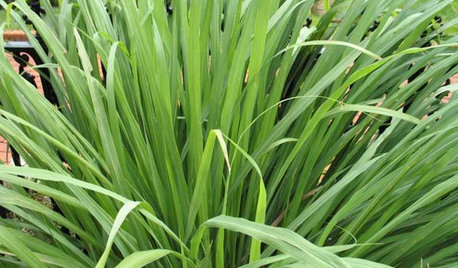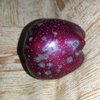Milk as an antifungal
curtis
10 years ago
Related Stories

HERBSHerb Garden Essentials: Grow Your Own Zesty Lemongrass
Add lemony goodness to cooking and tropical flavor to your yard with this grass-like herb native to Southeast Asia
Full StoryI was reading up on control of brown rot last night. There are several blogs and etc that claim to have successfully treated fungal issues with milk. The idea is based on a 100 year old study in Canada that was turned up in 1999 and has gotten some traction since.
I want to post this to help anyone who wants to try it. I don't care to argue with anyone who does not want to believe natural things are effective. I just want to put this out there so those who want to try it can have some success.
I believe the Canadian study, but not most of the blogs & etc. I think we all have read blog posts that are in the field of our work expertise and we can see the blogger completely winged it, right?
Here is why I don't believe the blogs. From my wifes field of study the only way this would work, and it will, is if the milk is raw. Milk you buy at the store has been pasteurized, which is heated to kill the living organisms in it. The need for this in drinking milk is due to pathogens picked up on commercial handling of milk.
In many states it is illegal to buy milk that has not been pasteurized. In others you can buy it direct from the farmer only, and I believe in CA you can buy in some stores.
So you must start with raw milk for it to work. Mix milk and water at the rate of 20-50% milk and spray onto your plants every 10-14 days or after a rain. It has to be used as a preventive, not a disaster recovery.
try it for any garden or orchard issue that is fungal.
Where to find raw milk: many people won't want it bad enough to do the work to find it. Fine.. But for those who want to, the best place to start is find a local Weston A Price chapter and ask them. ( WAP is a healthy eating organization that is big on raw milk) You can also ask around at a farmers market. The milk does not have to be organic, although most of what you find available raw will be. If there is a small cheese making operation in your area you may be able to get whey from them. But you would have to inquire about the temperatures in their process.



fruitmaven_wiz5
drew51 SE MI Z5b/6a
Related Discussions
milk/water mix for mildew?
Q
where to find vermiculite and anti-fungal powder?
Q
Coconut Milk to clone plants?
Q
Potassium bicarbonate as an antifungal
Q
olpea
Scott F Smith
fruitmaven_wiz5
bobhei77
Scott F Smith
nyboy
bobhei77
appleseed70
copingwithclay
Scott F Smith
Scott F Smith
bobhei77
gonebananas_gw
bobhei77
Scott F Smith